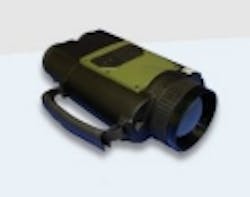Rad-hard SRAM solid-state memory for military and space applications introduced by Cypress Semiconductor
SAN JOSE, Calif., 14 Dec. 2010. Cypress Semiconductor Corp. in San Jose, Calif., is introducing radiation-hardenedsolid-state memory devices for military, satellite, avionics, and other applications that are exposed to radiation. The rad-hard 72-MBit QDR II+ static random access memories (SRAMs) resist total-dose radiation of as much as 300 kilorads.
The rad-hard SRAMs from Cypress (Nasdaq:CY) have clock speeds as fast as 250 MHz and throughput of as much as 36 gigabits per second. These memories are based on the company's patented RadStop technology, which combines manufacturing process hardening and proprietary design techniques. The new devices with RadStop technology deliver single event latch-up and single event functional interrupt immunity at temperatures as high as 125 degrees Celsius.
Cypress offers four configurations of the rad-hard 72 Megabit QDR II+: x18 and x36 bus widths, and with two- and four-word burst modes. All the devices come in 165-pin ceramic column grid array (CCGA) packages, which are manufactured in the Cypress FAB-4 facility -- a Microelectronics Trusted Category 1A Fabrication facility in Bloomington, Minn., and packaged and tested in the United States.
For more information contact Cypress Semiconductor online at www.cypress.com.
